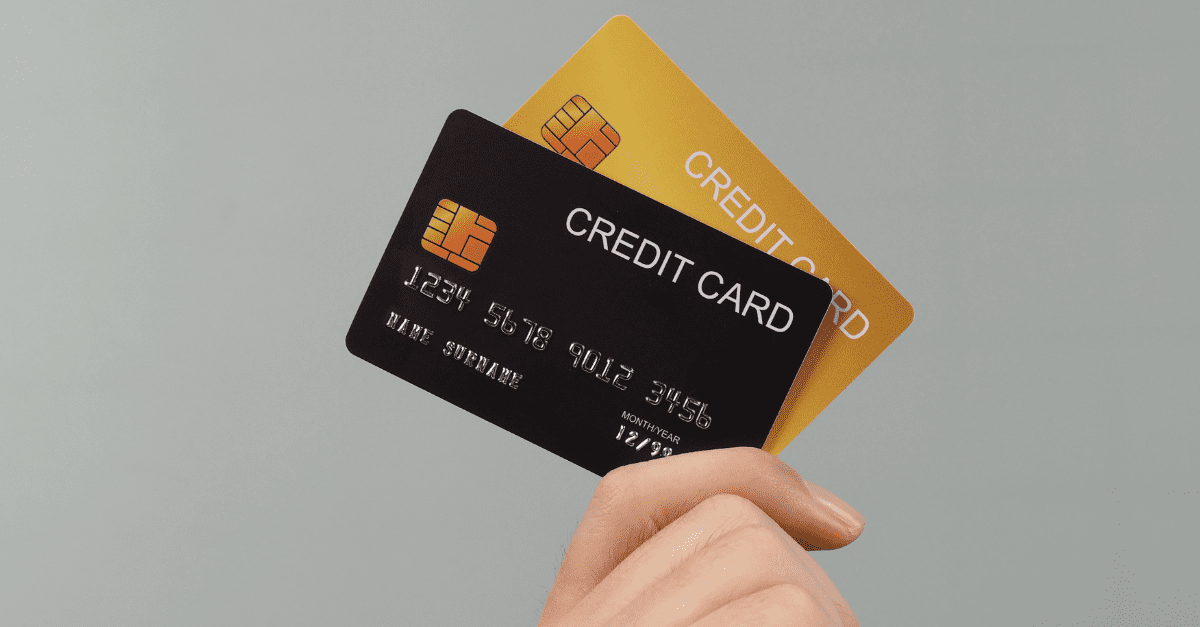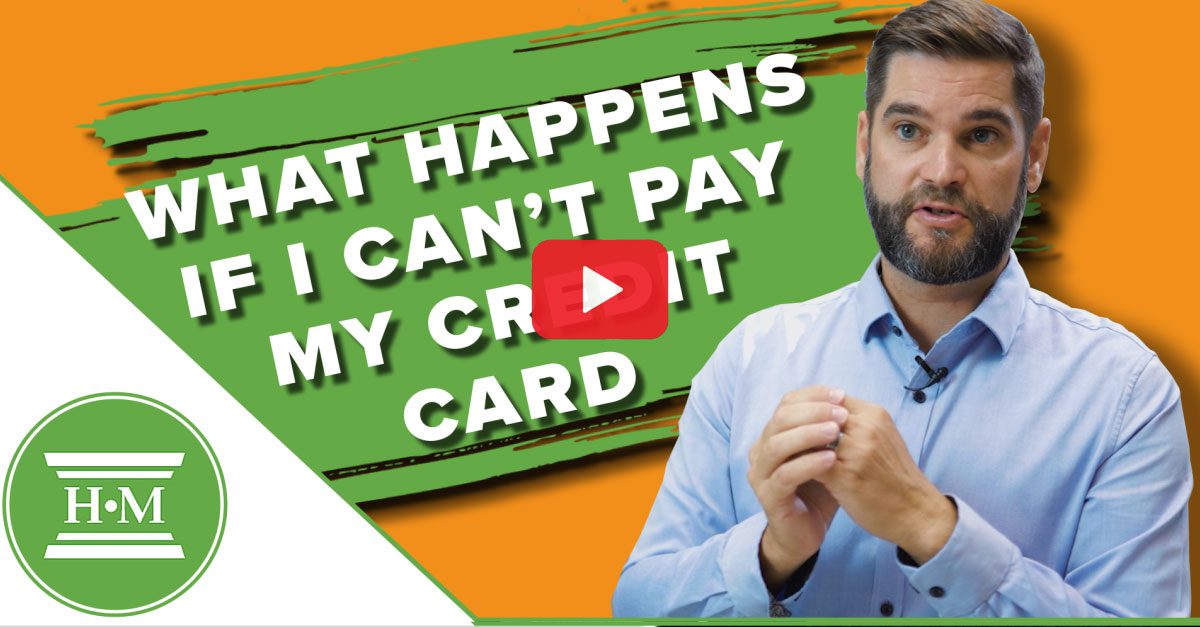
As a credit cardholder, one of your most important financial challenges revolves around credit card debt management. Your goals should be to keep outstanding balances low, avoid high interest rates, and pay your minimum payments on time.
But what do you do when one credit card is maxed out, and you struggle to make your credit card payments on that card? Or what if an alternative credit card company offers you a credit card with a lower interest rate? Should you pay your credit card debt with a different credit card? That’s what we are exploring today – when paying a credit card with a different credit card is a good idea and when it’s not.
Table of Contents
Can you pay off one credit card bill with another credit card?
Settling one credit card bill with another isn’t an option, as credit card companies won’t accept another credit card as a form of payment. Accepted payment methods usually include cheque payments, electronic bank transfers, or money orders.
However, there are workarounds including:
-
balance transfers, or
-
using cash advances.
How to pay off a credit card with another credit card
Although you can’t directly pay one credit card with another credit card, here are some options to transfer balances and the pros and cons of each.
Balance transfer
One method to pay off a credit card with another involves leveraging multiple credit card issuers. Applying for a new credit card that offers balance transfers allows you to move balances from one credit card to another.
Depending on the card, you may qualify for a lower or zero introductory interest rate, which will help you save money on interest charges, at least during the promotional period. Switching from a high-interest credit card to a low-interest card can reduce your interest charges in the long run.
Cash advance
Another option to pay off your credit card debt is to take out a cash advance on one card, place those funds in your bank account, and then make your regular monthly payment on your second credit card bill. Be aware that cash advances have no grace period. You will pay interest charges on the card you took the advance on beginning immediately.
Using a cash advance on one card to pay off another is not paying down credit card debt. You are simply transferring balances between cards.
Pros and cons of paying a credit card with another credit card
So, is it worth paying off a credit card with another credit card?
The main benefits of paying a credit card bill with another card are avoiding late payment charges and lowering your interest rate.
There are certainly some risks with using a credit card to pay off another credit card, including:
Multiple payments
It’s crucial to understand billing cycles if you are going to be juggling multiple credit cards. Having more than one credit card means you may have multiple monthly payments with different due dates. Juggling many payments can lead to missed payments, resulting in higher interest costs and a hit to your credit score.
More credit card debt
Having more credit cards means having a higher overall credit limit. While the available credit on a balance transfer card may be tempting, resist the urge to put additional purchases on your new card and focus on repaying your remaining balances first.
When dealing with credit card debt, taking on additional debt is not always the best idea, as it can perpetuate the cycle of borrowing and may not effectively resolve the root issue.
No credit card rewards or points
You won’t earn points or receive cash-back rewards when using balance transfers to pay off balances on another credit card. Credit card balance transfers are a payment, not a credit card purchase, so do not earn rewards. Cash advances also do not earn reward points.
Balance transfer fees
Some credit cards will charge a balance transfer fee, and most will charge a fee for a cash advance. This fee could cost you between 3% and 5% when you transfer your debt from one credit card to another. Some balance transfer offers may also come with an annual fee, so check the terms and conditions.
Higher interest charges
Unless you have a promotional interest rate, you may pay more in interest charges in the long run.
The primary benefit of a balance transfer credit card is the introductory APR offer. Promotional periods typically limit the interest-free periods. If the outstanding balance from the transferred debt isn’t settled completely before the intro 0% offer ends, the remaining balance will incur the card’s standard annual percentage rate, which might be even higher than the interest rate of the card you’re transferring from.
The interest rate for a cash advance usually averages around 24%, significantly higher than the average APR.
If you are not paying down your balances, you will continue to pay more interest as credit cards are a high-cost borrowing option.
No grace period
There is no grace period with a balance transfer or cash advance unless you have a 0% interest offer. Interest charges begin the day you make the transfer or advance.
Credit score impact
Every new credit card application is a hard inquiry by lenders or credit card companies on your credit report, which can lower your credit score.
Credit utilization is the ratio of your outstanding balance on a credit card to your credit limit, expressed as a percentage. A higher ratio can negatively impact your credit score. Obtaining a new card with a higher credit limit can lower your utilization rate, but only if you don’t increase your spending.
Alternative ways to pay off a credit card
Paying off one credit card with another may seem convenient, but it’s not always wise. Even using the best balance transfer strategies may not be the best approach to paying down your credit card debt.
There are alternative methods and smarter strategies beyond making the minimum payment and paying one credit card off with a different credit card.
Debt consolidation
Combining balances onto a single balance transfer credit card combines multiple credit card bills into a single monthly payment with a potentially lower interest rate, making it easier to manage.
You will need a good credit score and stable income to qualify for a debt consolidation loan. There are debt consolidation loans for people with bad credit. However, these types of loans carry a very high interest rate.
Using a line of credit
Another option is a line of credit, which offers a lower interest rate than credit cards. If you are a homeowner, you may qualify for a low rate through a home equity line of credit.
Personal loan
Additionally, personal loans provide the flexibility of spreading out payments with installment plans and fixed payments, often at lower interest rates than credit cards.
If you have bad credit, we do not recommend using a payday loan or high-interest fast cash installment loan to make credit card payments. Consider the annual interest rate of the new loan and ensure that it is less than the annual percentage rate on your credit card.
Emergency fund
Building an emergency savings account can provide a financial safety net, allowing you to cover unexpected expenses without resorting to high-interest credit card debt.
What if you can’t pay your credit card debt?

Using one credit card to pay off balances on another may seem like a quick fix for credit card debt, but unless you’re paying off your entire balance, all you may be doing is moving debt around.
If you are struggling to pay off credit card debt, consider exploring your options for credit card debt relief. This may include seeking assistance from a licensed insolvency trustee and considering options like a consumer proposal, bankruptcy, or a debt settlement plan.
Contact us for a free, no-obligation consultation if you need help with your credit card debt.





